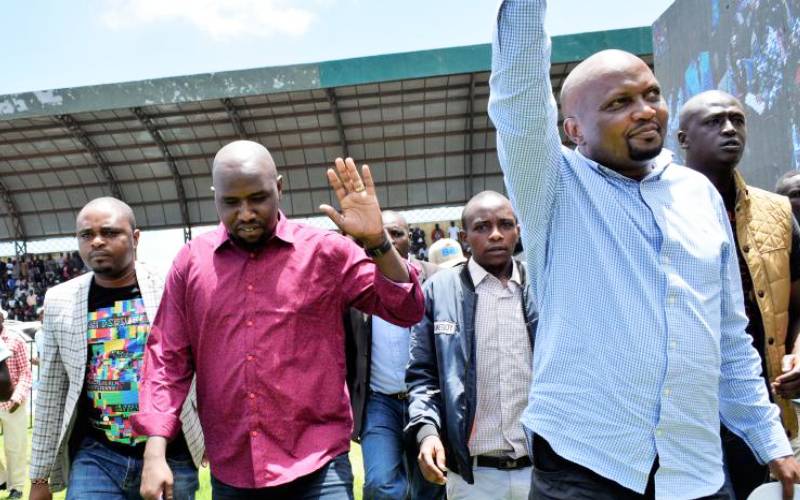×
The Standard e-Paper
Join Thousands Daily

Elgeyo Marakwet Senator Kipchumba Murkomen and Gatundu South MP Moses Kuria during the BBI meeting at Kinoru Stadium in Meru county on February 29, 2020. [Olivia Murithi, Standard]
Kenya is undergoing a momentous moment. The country is on the verge of realignments as the Building Bridges Initiative presents the political class a chance to flex muscles.